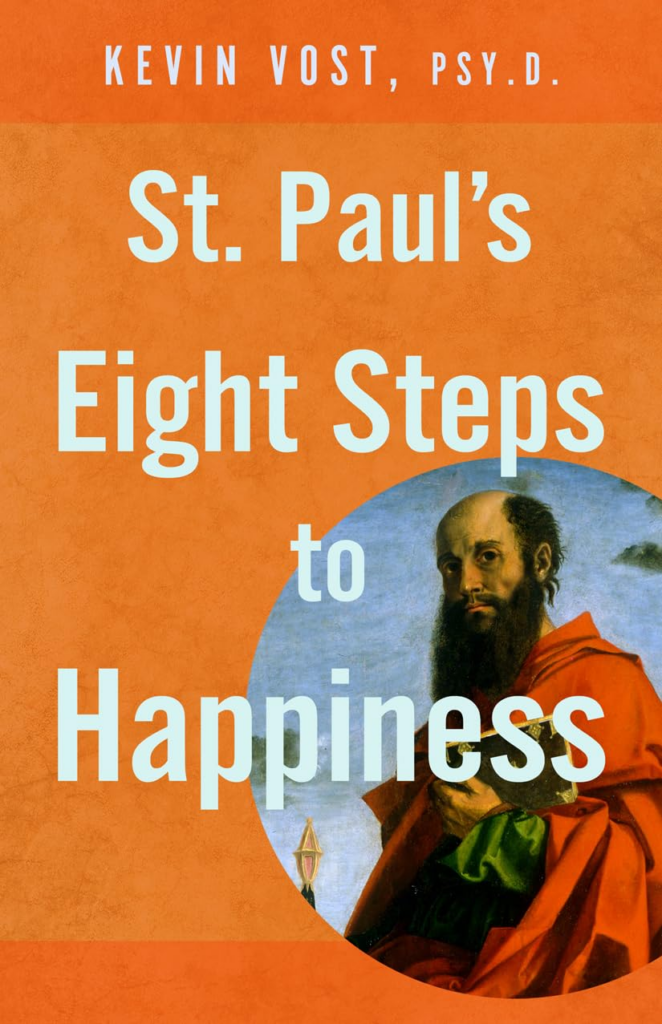Sophia Institute Press has a book St. Paul’s Eight Steps to Happiness by Kevin Vost. Just looking at the title and before opening the book, I would have guessed it would be based on the Beatitudes for 2 reasons:
- Beatitude comes from the Latin word “beatitudo” which literally means, “happiness.” We see this also in regards to heaven (when we’re happy) as we will experience the beatific vision, which means seeing God face to face.
- There are eight beatitudes!
But alas, I read the book and it was NOT about the beatitudes!

It goes through the 8 parts of St. Paul’s letters to the Philippians (which he wrote while he was in prison!) He said, “Finally, brethren, whatever is true, whatever is honorable, whatever is just, whatever is pure, whatever is lovely, whatever is gracious, if there is any excellence, if there is anything worthy of praise, think about these things” (Philippians 4:8)
Let me know if you’d like me to comment more of the 8, but for today, I’ll go into the 1 of them.
“Aristotle wrote that there are many vices that can miss the mark of a virtue, just as there are many ways that arrows can miss a target’s bull’s eye.”
Vost shares there are 3 ways to miss the mark when it comes to the bull’s eye of truth.
The first is hypocrisy which comes from the Greek word hypokrites which means “actor.” “If a hypocrite does not care about holiness but only wants to appear holy to others, it is a mortal sin.” I personally must add that even though I fall and sin and try to get back up thanks to the Sacrament of Confession, I do care about holiness. I think it would be wrong for a person to judge the inner heart of others if they care or not care about holiness. That’s for God to judge. Also, even though I mean write about holy things, that does NOT mean I’m trying to appear holy to others. Those are 2 different distinct things. I write about holy things to seek the kingdom of God and to grow in holiness, but that does not mean I’m trying to appear holy. I admit I am broken and a sinner in need of Jesus’ mercy and grace.

The second miss on the mark of truth is boasting. This would be exceeding the truth. One example is of the Pharisee who said, “I am not as the rest of men, extortioners, unjust, adulterers, as also is this publican” (Luke 18:11). This tells me that we can’t judge ourselves better than bigger “sinners”. And definitely, we can’t belittle them.
The third and final miss on the mark of truth is irony. The common use of this word is very different what we’ll use today. What Aristotle, St. Augustine, and St. Thomas Aquinas mean by irony is “understating the truth” or “false humility” or “self-belittlement.” This is a bit of good intention when someone does this (maybe to not make others envious of them). So it would be not as grave a sin as boasting. But if we’re being truthful, God made us with dignity, in His image and likeness, and gifts. Gifts could be personality, humor, athleticism, musical talent, intelligence, etc.
What would St. Augustine do to be truthful about himself in regarding to his clothing? Augustine “was unwilling to possess clothes that were either too costly or too shabby, because by both do men seek glory.”
May we strive to be as truthful as we can about ourselves.
St. Paul, pray for us.
St. Thomas Aquinas, pray for us.
St. Augustine, pray for us.
